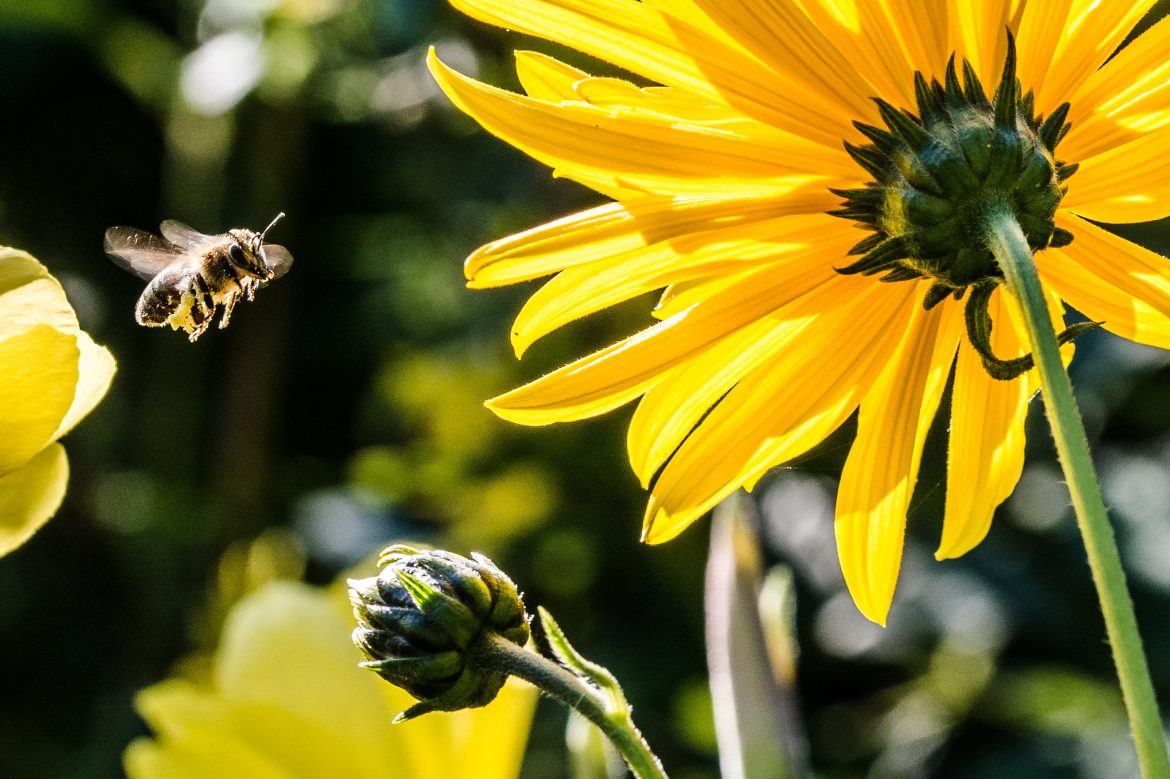
Honey Bees Now Have Shorter Lifespans
Researchers from the University of Maryland have determined that honey bees in the laboratory have a shorter lifespan than they did 50 years ago, almost by half. This data seems to confirm the colony collapse and related honey-production problems beekeepers in the USA have faced in recent years.
Imagine what would happen if the average lifespan of humans dropped by half within 50 years. In other words, if all humans suddenly started to die in their 40’s while they were able to live until their 80’s in 1970. This would probably create quite a mess, and all of humanity would perhaps devote all available resources to figuring out the cause. This is exactly what the entomologists are doing right now. They are trying to figure out why honey bees, crucial plant pollinators, have a much shorter lifespan now. Anthony Nearman and Dennis van Engelsdorp from the University of Maryland are working on mathematical models, which show that shortened lifespan of honeybees may lead to mass colony loss.
The average lifespan of honey bees, which used to be 34.3 days according to data from 1969 data, is now 17.7 days.
Colony loss is quite normal in beekeeping. Bees naturally age and colonies collapse. But since the 21st century began, especially during 2006-2007, some beekeepers in the USA have lost up to 90%, and research on this continues. The reason behind the condition called Colony Collapse Syndrome possibly is the use of agricultural and urban pesticides that affect the nervous system of bees, plus the impact of Varroa mites –which are the primary mode of transmission for deformed wing virus in honey bees.
In the new research, scientists collected honey bees from their hives when they were still in the pupa stage, just before they emerge as adults. “Whatever is reducing their lifespan is happening before that point,” says Anthony Nearman, “introduces the idea of a genetic component. If this hypothesis is right, it also points to a possible solution. If we can isolate some genetic factors, then maybe we can breed for longer-lived honey bees.” However, it’s also possible that honeybees are living less because of low-level viral diseases or pesticides they are exposed to in the hive during their larval stage. Some of today’s pesticides were not available 50 years ago, and we also know that honey bees exposed to some of them, especially a group of pesticides called neonicotinoids (via pollen grains), are less resistant to diseases.
While studying the diet of isolated honey bees, researchers noticed the bees’ lifespans were shorter than those in similar studies conducted before, and began to delve deeper into research conducted over 50 years. When they modelled the effect of this 50% reduction in the bees’ lifespan on a beekeeping operation, the average loss rates were found to be around 33%. This data matches the average overwinter and annual loss rates of 30% and 40% reported by beekeepers over the past 14 years.
Their next goal is to compare similar data in the US with other countries. If they can detect a difference in the mean lifespan values, they may compare the underlying causes and reach definitive conclusions.
Unfortunately, the pressures on honey bee populations are not limited to these. Habitats of honey bees continue to narrow down; while the loss of biodiversity, reduction of natural areas and urbanization make it difficult for bees to find food. Furthermore, another recent study determined that the electric fields generated by plants are changing due to synthetic fertilizer use, and that the bumblebees become confused while they search for flowers to collect pollen from.
Scientists observe similar situations in other species. For example, cod fish now reach adulthood earlier as they no longer have the opportunity to grow larger due to overfishing. So, it is possible that honey bees may have developed a similar “live fast, die young” tactic.
REFERENCES
- 1. https://phys.org/news/2022-11-honey-bee-life-spans-shorter.html
- 2. https://www.sciencealert.com/the-life-of-a-honeybee-has-been-cut-in-half-in-just-50-years
- 3. https://academic.oup.com/pnasnexus/article/1/5/pgac230/6814445?login=false
- 4. https://academic.oup.com/pnasnexus/article/1/5/pgac230/6814445?login=false
